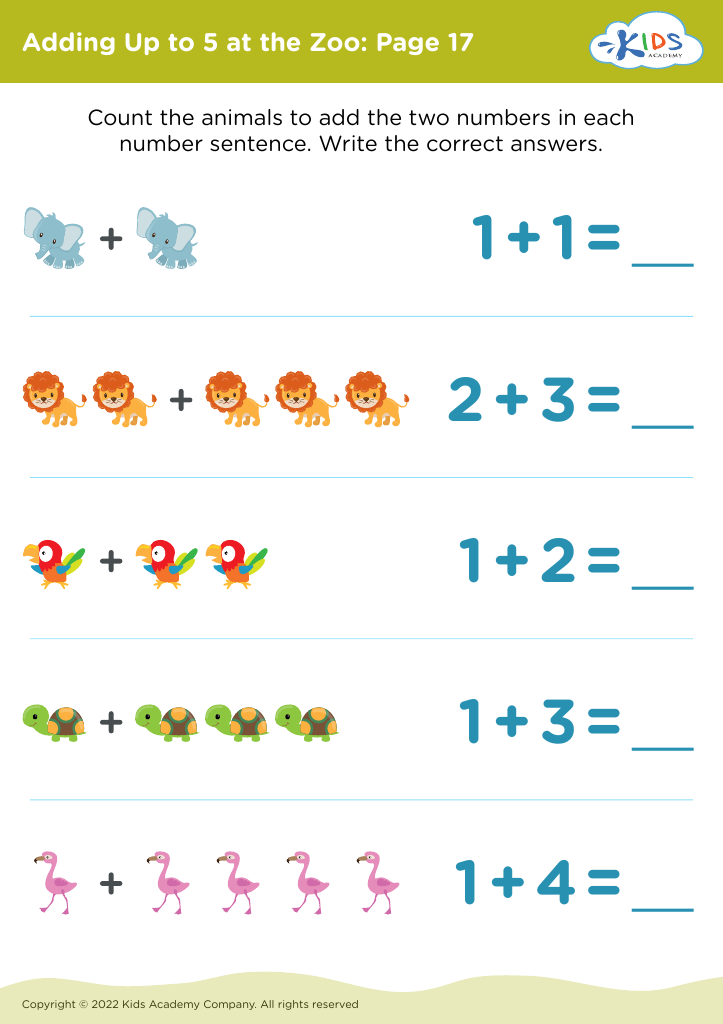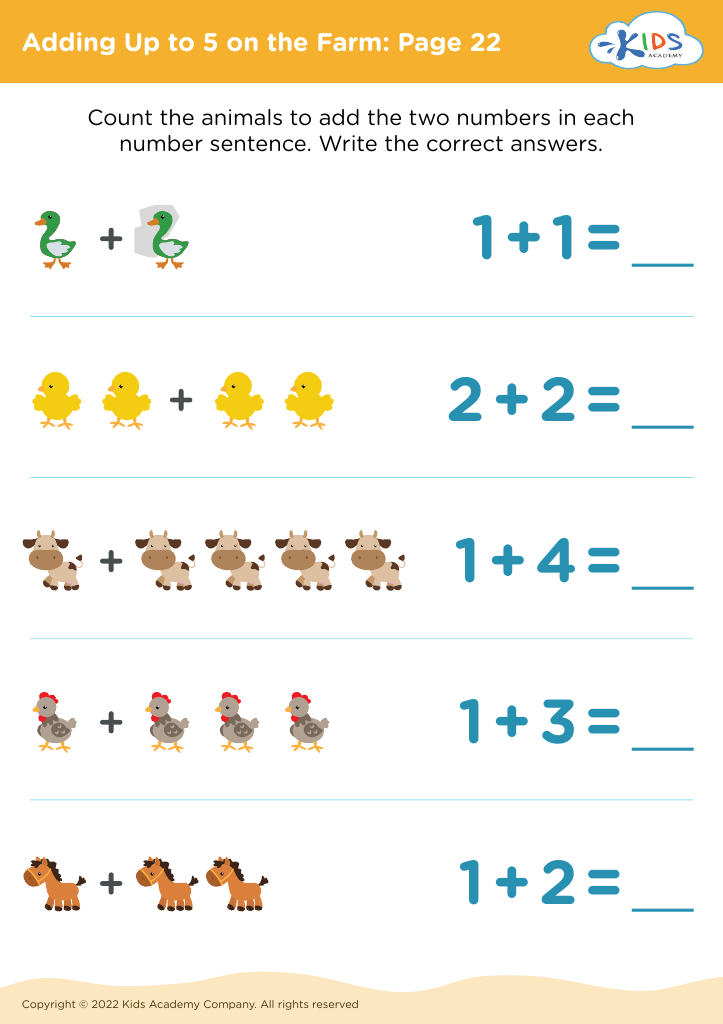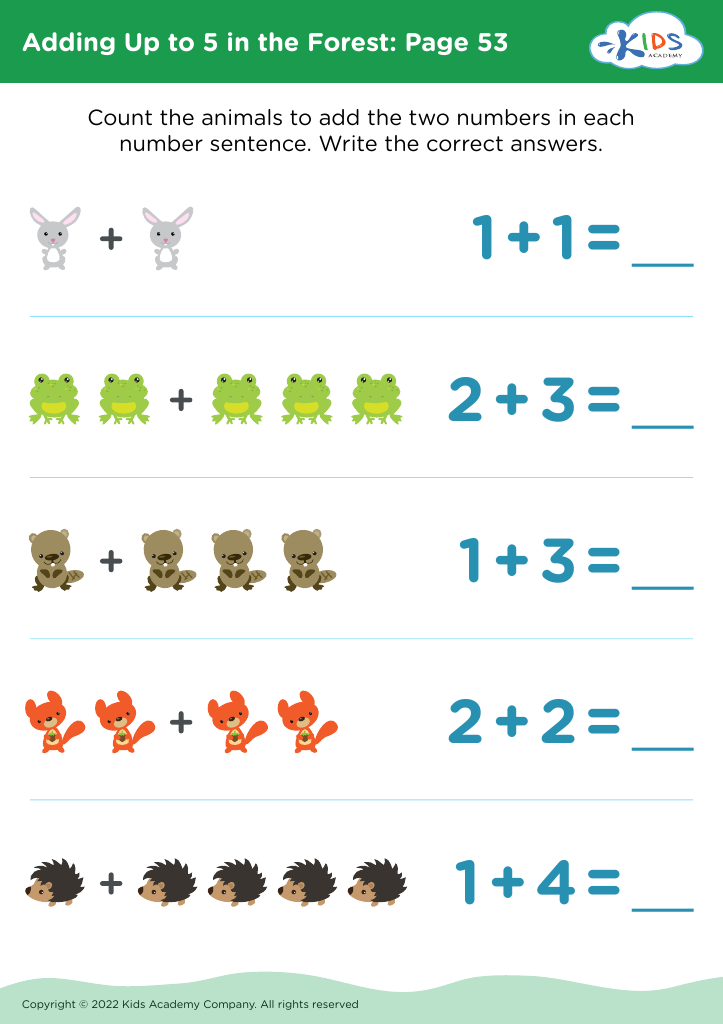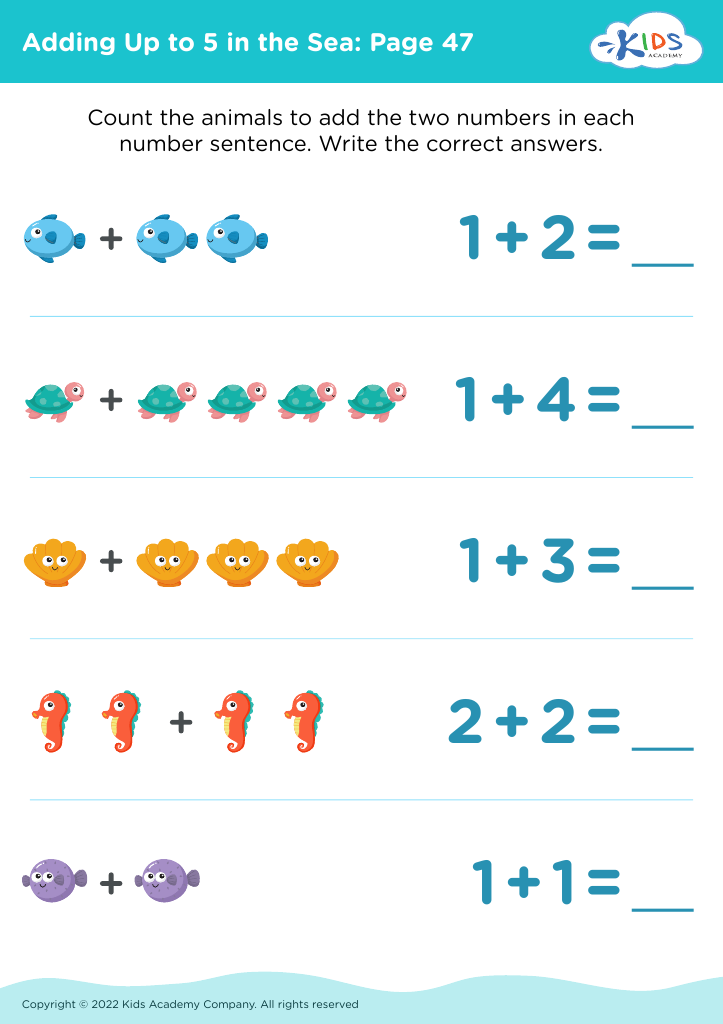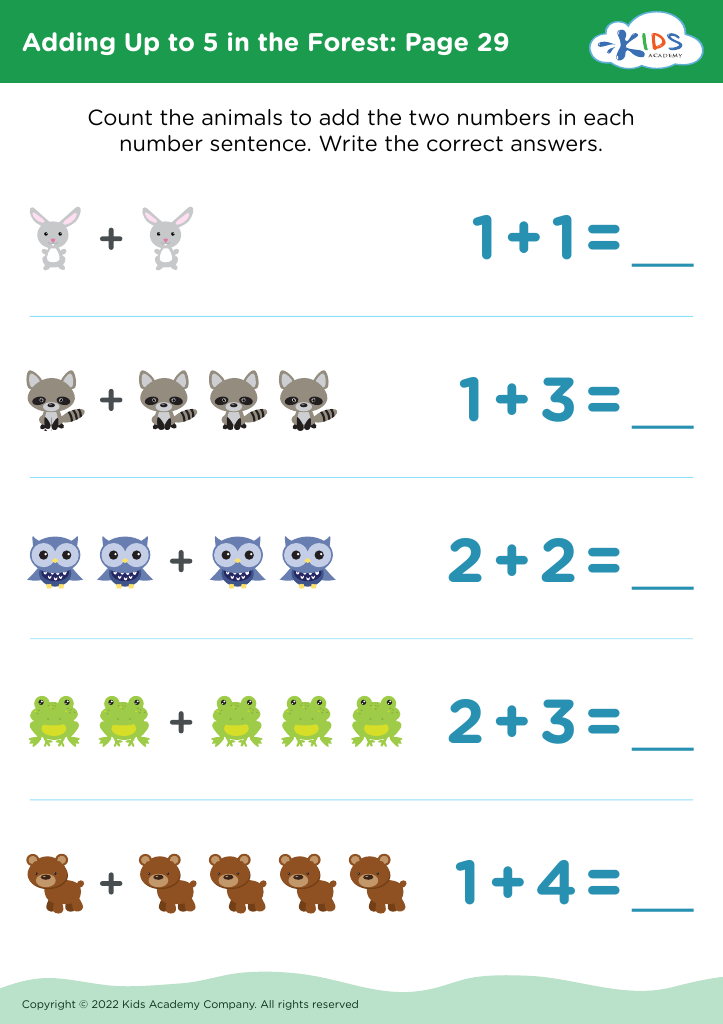Counting proficiency Addition Worksheets for Ages 5-7
11 filtered results
-
From - To
Enhance your child's counting and addition skills with our expertly designed Counting Proficiency Addition Worksheets for Ages 5-7. These engaging worksheets provide young learners with the practice they need to master counting and basic addition. Each sheet is crafted to build confidence and improve proficiency through fun and interactive activities tailored to the developmental stages of early learners. Suitable for classroom use or at home, these worksheets are perfect for providing extra math support and ensuring a strong numerical foundation. Watch your child experience the joy of learning math with our clear, concise, and engaging addition worksheets.
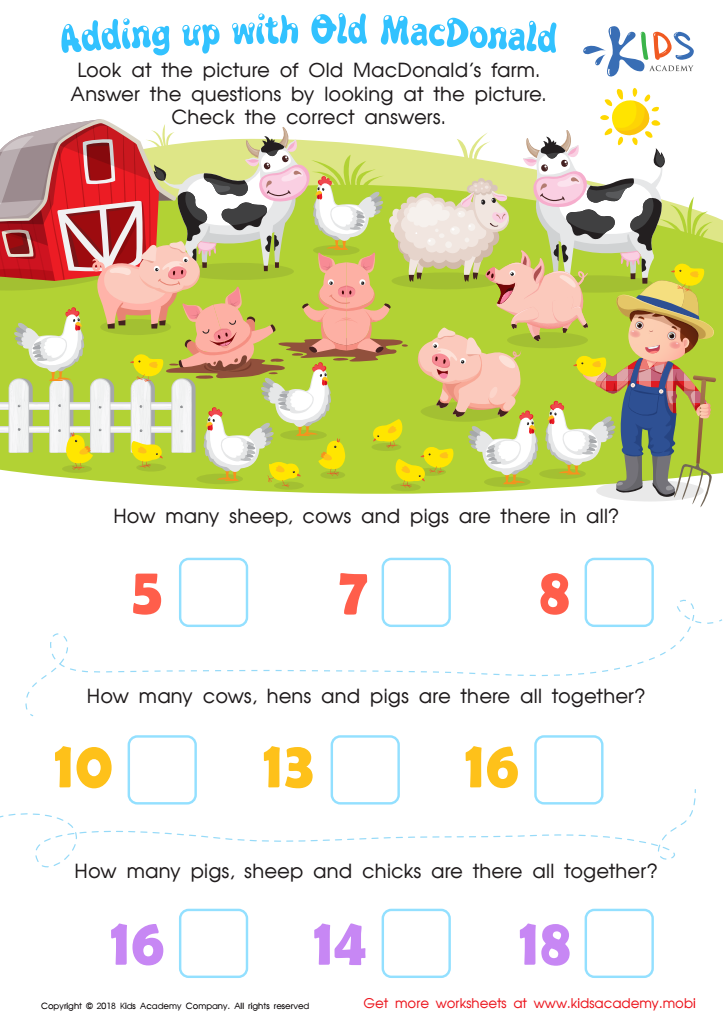

Adding Up with Old MacDonald Worksheet
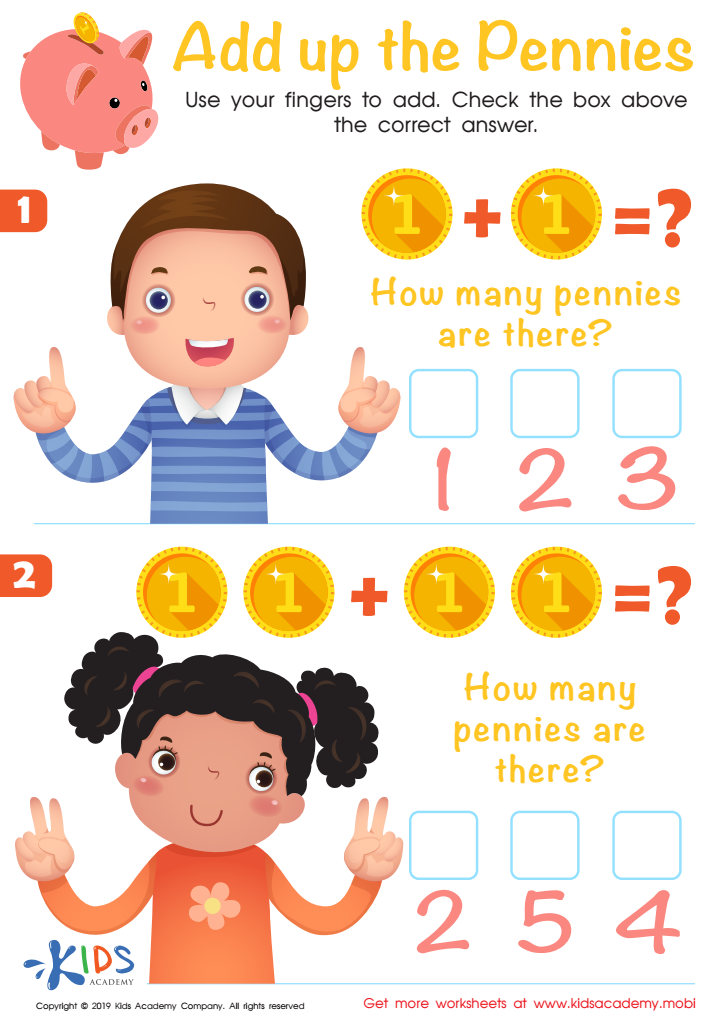

Add up the Pennies Worksheet
Counting proficiency and an understanding of addition are foundational skills for children aged 5-7 and are vital for their overall academic success and daily functioning. At this age, children are developing their number sense, which is the ability to understand, relate, and connect numbers in a meaningful way. Mastery of counting is the first step toward achieving this, as it helps children grasp the basic principle that numbers represent quantities.
Addition builds on this skill by introducing the concept of combining quantities. This not only enhances computational ability but also encourages logical thinking and problem-solving skills. Being proficient in addition allows children to understand broader mathematical concepts and operations as they progress in school.
Moreover, these skills are transferable to other areas of learning and daily life. For instance, children use counting and addition when they play games, share items, or follow instructions involving quantities. As they progress, these skills aid them in understanding more complex topics like measurement, statistics, and geometry.
Therefore, parents and teachers should nurture counting and addition proficiency as it lays a critical foundation for future academic achievement and practical problem-solving. Early intervention and consistent practice in a supportive and engaging environment can make a significant difference in a child's mathematical journey.
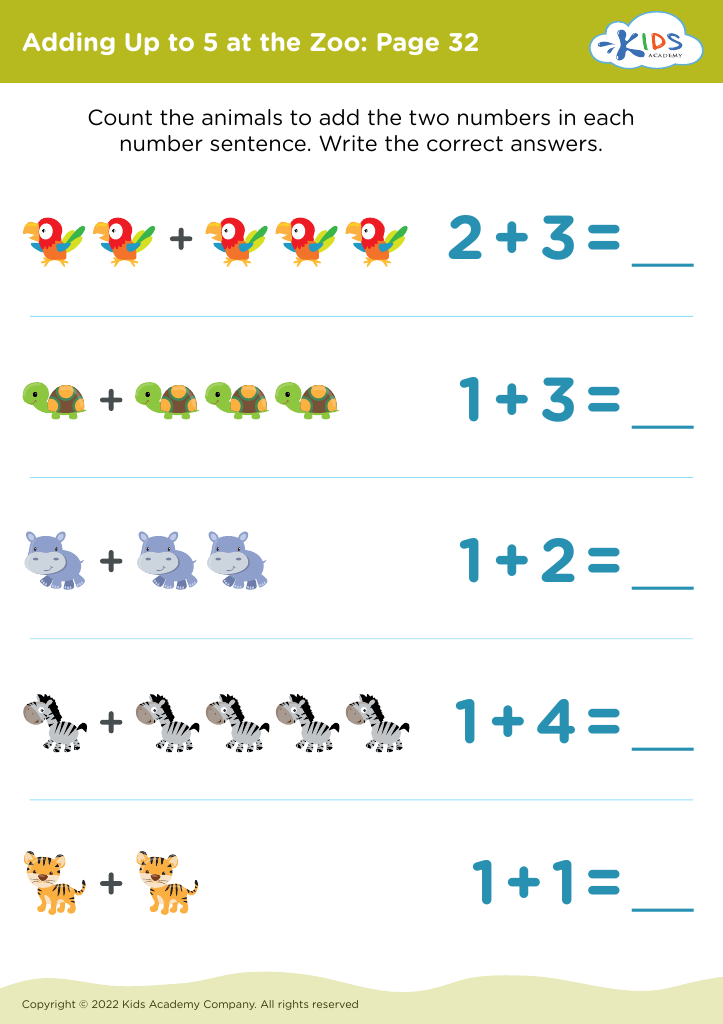

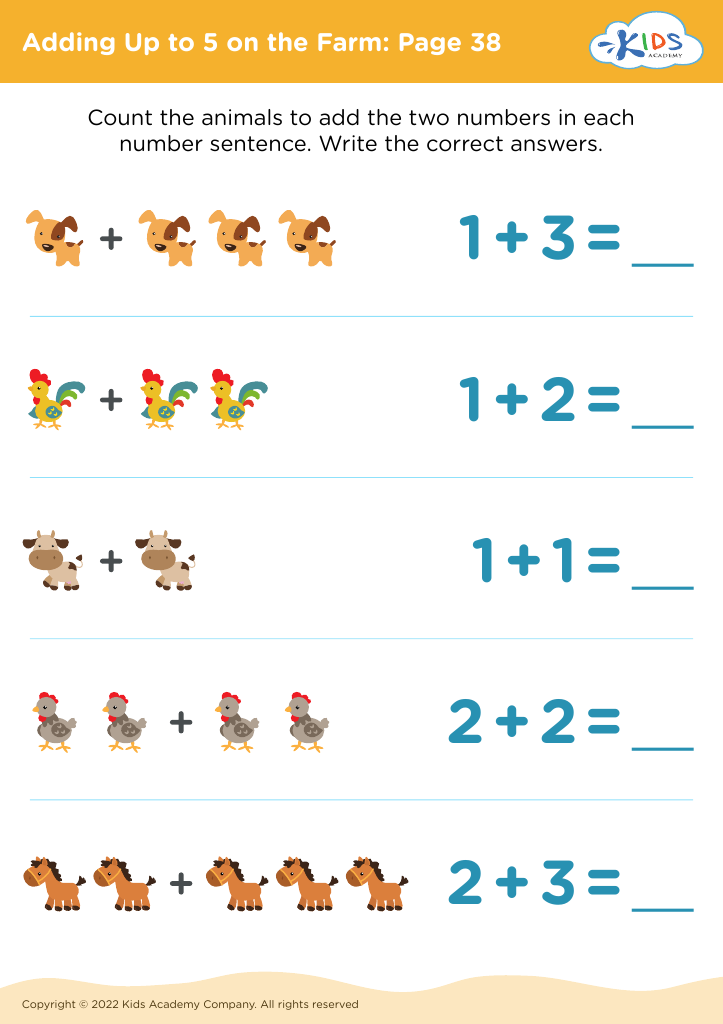
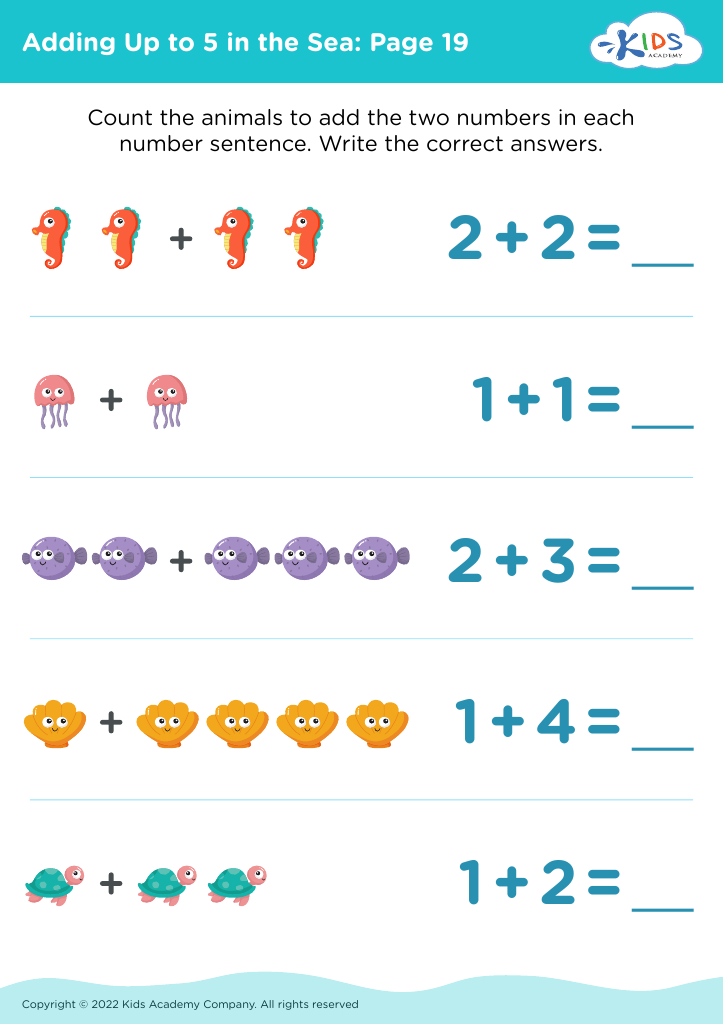
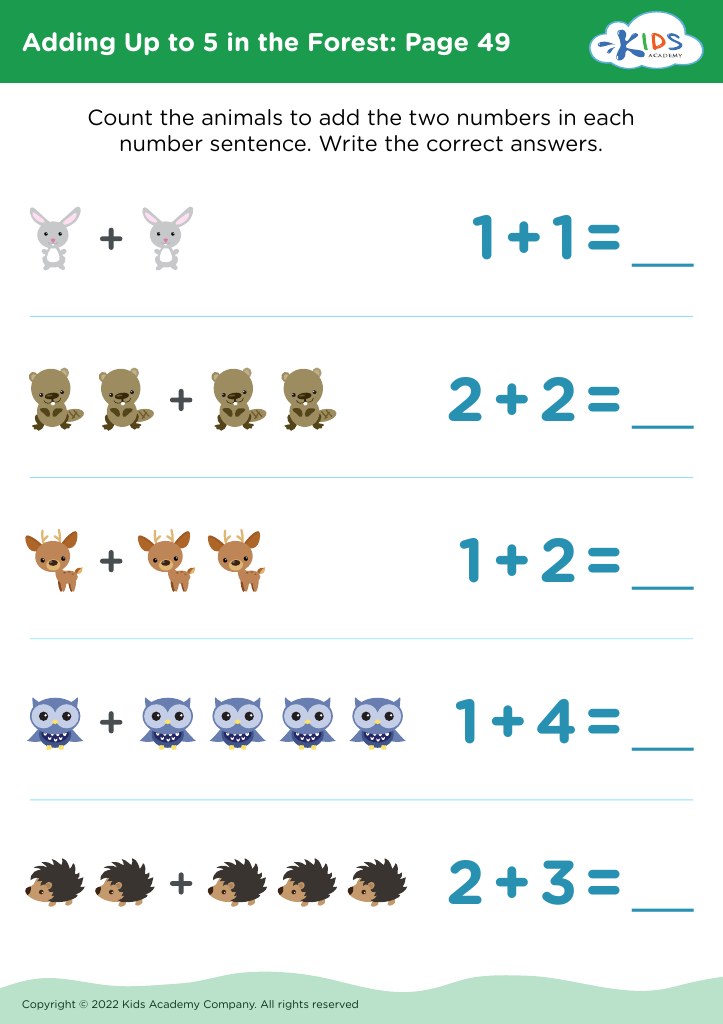
 Assign to My Students
Assign to My Students
